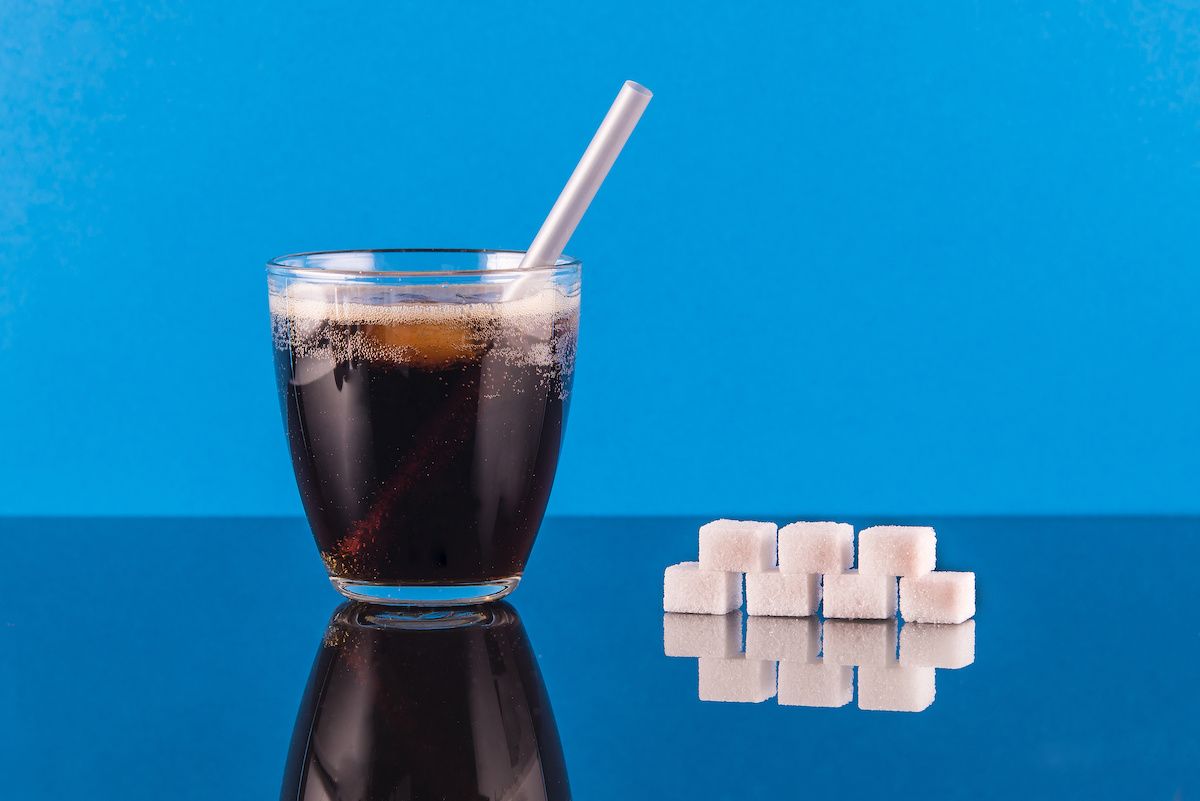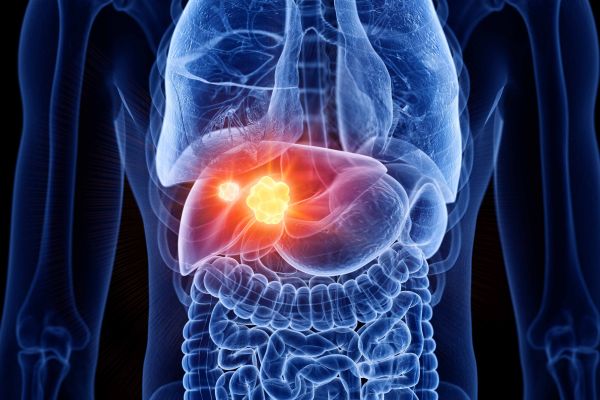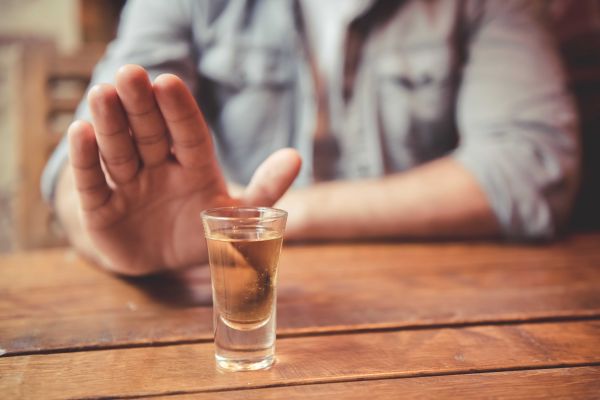One can of soda contains all the sugar you should have for the day
Sugar is as sugar does. Too much of it in any form can lead to cellular damage in your liver that leads to liver cancer — the fourth leading cause of death worldwide. In our modern society, however, it’s pretty hard to avoid consuming too much sugar.
In America, sugar consumption has increased dramatically over the last 30 years, specifically the overconsumption of fructose and high fructose corn syrup, now among the most common sweeteners in processed foods and soft drinks. Recent studies have associated this trend with weight gain and obesity, insulin resistance, type 2 diabetes and non-alcoholic fatty liver – metabolic anomalies related to the development of hepatocellular carcinoma (HCC), which represents about 90% of primary liver cancers.
Liver tumors may be benign (non-cancerous) or cancer. The two main cancers of the liver are hepatocellular carcinoma, which arises in the liver from cells called hepatocytes; and cholangiocarcinoma, malignant tumors that begin in the bile duct.
Decades ago, the two most common culprits for developing cancerous liver tumors were heavy alcohol consumption (cirrhosis), and chronic hepatitis B and C infection, explains Benjamin Calvo, MD, a surgical oncologist formerly with Roswell Park Comprehensive Cancer Center. “A more recent problem in the etiology of these tumors has been sugar,” says Dr. Calvo, who tells his patients that the modern convenience of industrialized, prepackaged food has led to an unhealthy alteration of the American diet.
Too much sugar burdens your liver
“It isn’t that fructose is poison. It’s that we are overconsuming processed foods which are overburdened with sugar of any kind. And sugar is very addictive. How do we know? Because we all love it,” he smiles. “I’m not accusing companies of trying to kill us. They’re just selling what people have become habituated to.”
To make the point, he recommends reading the ingredients on almost any packaged food product in a supermarket: “Pick up the healthy ones, you know, the fruit bars, healthy cereals, multigrain cereals – pick up a jar of peanut butter, pick up whatever you want. It’s nearly impossible to find any products that don’t have sugar added to them, which basically tells you and I that we don’t have any control over the amount of sugar we consume if we are consuming prepackaged, convenient, industrialized food.”
Drinking just one can of soda, he adds, accounts for all the sugar you should consume for one day. “This means you couldn’t have rice; you couldn’t have a banana; you couldn’t have a beet or apple. You couldn’t have anything with sugar.”
Dr. Calvo also warns that bananas and cherries and apples crushed and rolled into bars, or vegetables powdered into capsules are not nutritionally viable and disrupt the body’s normal digestive system.
“The idea that we can concentrate everything into a capsule is nonsense. Nothing in our gastrointestinal system is designed for a capsule,” he maintains.
“Why is eating a banana better than eating a fruit bar that’s made of bananas and cherries? Because your stomach has stretch receptors that tell you you’re full. We have a lot of biologic feedback loops that tell us how much or how little to eat. Hunger is the end result of many of these feedback loops. What happens with our industrialized food is that we’re able to bypass many of those feedback loops. The trouble is you’re still hungry because nothing has stretched your stomach. You are still feeling like ‘I haven’t eaten anything.’”
In order to feel full, people eat more food laden with hidden sugars.
Why Roswell Park?
Our accomplished physicians are leaders in the field — not only do they follow the evidence-based NCCN treatment guidelines used by physicians around the world; they write them.
Fatty liver and chronic inflammation
The adverse effects of America’s passionate affair with sugar — whether it’s white sugar, cane sugar, sucrose, fructose, honey, agave or any other sweetener — are accumulating in its collective liver, the body’s primary processing plant for all nutrients absorbed into your intestines.
“One of the functions of the liver is to store fat. The liver can store energy as glycogen, a fat. If you consume huge amounts of fructose, as an example, your liver begins to store a lot of this sugar as glycogen, and you get something called fatty liver disease. This fatty liver disease can lead to inflammation,” explains Dr. Calvo.
“Inflammation, chronic inflammation, is really at the root of a vast number of cancers that afflict us. Sugar can cause inflammation in your liver by causing it to metabolize huge amounts of fructose or glucose and store that as glycogen.” A fatty liver can make it much harder to control blood sugar levels and lead to wild swings in blood insulin and sugar levels, which in turn cause the food addiction to perpetuate itself and potentially cause brain fog, moodiness, poor memory, headaches and shakiness.
To protect your liver, eat more (real) fruits and veggies
Dr. Calvo ultimately advises people to eat more real fruits and veggies and less processed food to reduce the risk of developing liver cancer from consuming too much sugar. “It’s really not more complicated than that. It truly isn’t. If you went to the market and bought those things you would be better," he says, adding that he regards his role, in part, in the context of the Latin word for doctor.
"’Docere’ means ‘to teach.’ That’s our job really, to help people live better lives. We’re happy to intervene, but, again, prevention should be at the forefront of much of what we do,” he maintains. “It’s too late when I have to take out part of your liver for liver cancer because you’ve eaten wrong for the past 15 or 50 years.”
Why Roswell Park for liver cancer?
Globally, liver cancer accounts for more than 800,000 deaths annually. Each year in the United States, about 25,000 men and 11,000 women are diagnosed with liver cancer, and about 19,000 men and 9,000 women die from the disease. Most cases can be attributed to a known underlying cause (heavy alcohol consumption, cirrhosis, or chronic viral hepatitis infection). However, recent studies link an increase in liver cancer to an increase in fatty liver disease associated with overconsumption of sugar that causes metabolic conditions which are known to increase cancer risk.
But determining if liver cancer is caused by too much sugar is, at present, primarily a process of diagnostic deduction, Dr. Calvo says. He and fellow Roswell Park pathologists, radiologists and medical oncologists use special MRI scans of the liver to examine the molecular composition of tumors and organs that helps them determine if a fatty liver or malignant liver tumor is caused by something other than alcohol or viral infection.
“What Roswell Park does very well is that we are all focused on cancer tumors, every one of our surgeons, medical oncologists and radiologists. We all get together to talk about your tumors, and decide what is best for you based on the way your disease presents,” he says.
Roswell Park also has an extraordinary capacity for providing multidisciplinary cancer care, he adds. This means tailoring a combination treatment for each patient, whether it’s surgical resection; using a less invasive treatment such as ablation, which uses heat to literally cook tumors in place in the liver, or embolization, which blocks the blood supplies to those tumors.
“We have all the tools available in the technical world today to treat these tumors. There is no treatment that you have to go somewhere else to get,” Dr. Calvo says.


